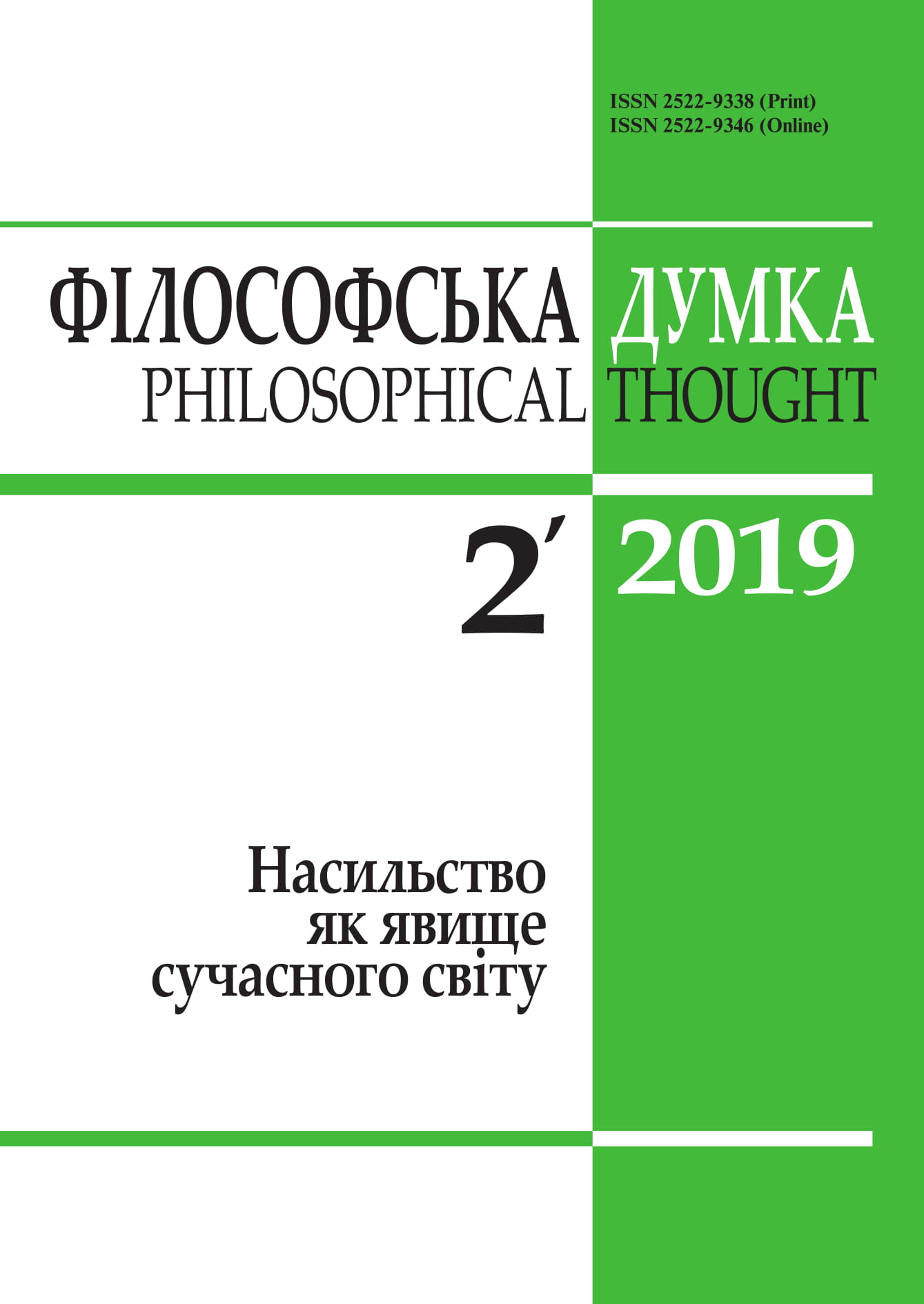Classical philosophy under the value and historical point of view
Keywords:
classics, classical philosophy, philosophical community, ideal type, historicphilosophical researches, cultural meaningfulnessAbstract
The article clarifies the meaning of the term «Classical Philosophy», that usually is unproblematic used in modern philosophical academic literature and course books. The author argues that the meaning of this term, which is widely used today, is unacceptable for effective historic-philosophical researches, due to the fact that it has been made on the basis of classics approach explication, founded on the making sense of art. In particular, Classical Philosophy can be neither a standard for an inheritance nor something that refers exceptionally to history nor the specific type of philosophy. The fundamental idea of this article lies in the fact that this term is considered in both social and cultural and methodological aspects. Classical philosophy is the meaningfulness and actual foundation of present-day philosophizing. At the same time it is the means of arranging the great variety of empiric materials acquired from specific researching perspective. This article proves that the usage of such methodological tool as an ideal type «Classical Philosophy» helps to avoid serious problem situations while investigating the History of Philosophy. The author justifies the methodological potential of this approach making actual Heinrich Rickerts’ ideas a cultural meaningfulness of historical phenomena and theoretical referring to values, Karl R. Popper`s idea of third autonomous realm as a realm of objective knowledge and Karl T. Jaspers’ idea an actualizing interpretation.
References
Horak, H. (2004). Philosophical Community as Social, Scientific and Social-psychological Structure. [In Ukrainian]. Philosophical Thought, 1, 3–14. [= Горак 2004]
Jaspers, K. (2000). World History of Philosophy. An introduction. [In Russian]. Saint Petersburg: Science. [= Ясперс 2000]
Jaspers, K. (2005). Techniques of thinking. [In Ukrainian]. Philosophical Thought, 2, 95–103. [= Ясперс 2005]
Kant, I. (2000). Critique of Pure Reason. [In Ukrainian]. Kyiv: Universe. [= Кант 2000].
Onnash, Е.-О. (2016). From Kant to Hegel or What is Classical German Philosophy? [In Ukrainian]. Actual problems of mind, 17, 3–15. [= Оннаш 2016]
Panafidina, O. (2011). Transcendentalism by I. Kant and German idealism (On some stereotypes of explication Kantian theoretical philosophy). [In Russian]. Questions of philosophy, 4, 177–186. [= Панафидина 2011]
Panafidina, O. (2016). A terminologization problem of German philosophy in the late 18th and early 19th centuries: a Soviet version. [In Ukrainian]. Actual problems of mind, 17, 16–35. [= Панафідіна 2016]
Popper, K. (1979). Objective Knowledge: an Evolutionary Approach. Oxford: Oxford University Press.
Popper, К. (1994). The Open Society and its Enemies. Vol. 2. [In Ukrainian]. Кyiv: Basics. [= Поппер 1994]
Rezvikh, P. (2009). A Phantasm of «German Classics». In Classics and Standard Authors in Social and Humanities Knowledge (pp. 419–434). [In Russian]. Moscow: New literary review. [= Резвых 2009]
Rickert, H. (1926). Kulturwissenschaft und Naturwissenschaft. Tbingen: Verlag von J.C.B. Mohr (Paul Siebeck).
Savelieva, I., Poletaev, A. (2010). Classical Heritage. [In Russian]. Moscow: GU-VShE. [= Савельева 2010]
Weber, M. (1998). «Objectivity» in Social Science. [In Ukrainian]. In M. Weber, Sociology. General Historical Analyses. Politics. (pp. 192–264). K: Osnovy. [= Вебер 1998]
Downloads
-
PDF (Українська)
Downloads: 226
Published
How to Cite
Issue
Section
License
Authors who publish with this journal agree to the following terms:
- Authors retain copyright and grant the journal right of first publication.
- Authors are able to enter into separate, additional contractual arrangements for the non-exclusive distribution of the journal's published version of the work (e.g., post it to an institutional repository or publish it in a book), with an acknowledgement of its initial publication in this journal.
- Authors are permitted and encouraged to post their work online (e.g., in institutional repositories or on their website) prior to and during the submission process, as it can lead to productive exchanges, as well as earlier and greater citation of published work (See The Effect of Open Access).


